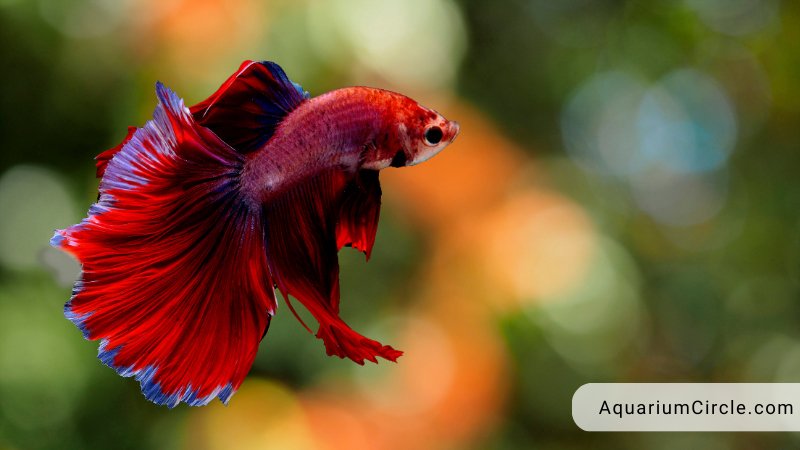Betta fish are one of the most popular freshwater aquarium fish, known for their vibrant colors and unique personalities. However, like any pet, betta fish can experience health problems, and one of the most concerning conditions is dropsy.
Dropsy in betta fish is a condition that causes the fish to swell up due to fluid accumulation in the abdomen and other body parts. This condition can be painful and even fatal if left untreated, making it crucial for betta fish owners to understand the causes, symptoms, and treatment options for dropsy in their pets. In this blog post, we will delve into the topic of “dropsy betta,” providing helpful information and advice for betta fish owners who want to keep their pets healthy and happy.
See also:
- Clamped Fins Betta – 5 Truths Keep You Calm To Deal With It
- Betta Fish Bloated – 4 Important Things You Should Know About Bloated Betta Fish
- Swim Bladder Disease Betta – Betta Care To Be Aware Of
Is Betta Fish Dropsy A Disease?
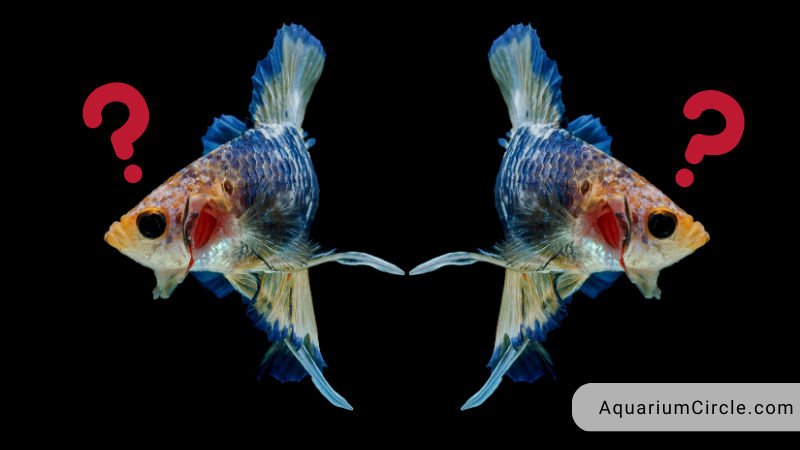
Dropsy in betta fish is not a disease itself, but rather a symptom of an underlying health issue. It is often a sign of a bacterial infection, organ failure, or other internal problems that can affect the fish’s overall health. Betta dropsy causes fluid accumulation in the fish’s body, leading to swelling and other symptoms that can be painful and even fatal if left untreated. Therefore, it is essential for betta fish owners to monitor their pets’ health closely and seek prompt treatment if they notice any signs of dropsy or other health problems.
What Causes Dropsy In Betta Fish?
Dropsy in betta fish is a condition that is often associated with kidney failure, poor diet, bad osmoregulation, or other internal infections such as those affecting the liver. It occurs due to fluid buildup, leading to internal swelling that puts pressure on the body and abdominal area. Aging bettas are particularly susceptible to kidney failure and other viral, bacterial, and parasitic infections, which increases their risk of developing dropsy.
In addition, high bio-loads resulting from too many tank mates or a too-small ecosystem can cause harmful infections and bacteria to proliferate quickly, increasing the likelihood of dropsy. Live food and proteins not recommended for betta fish consumption can also cause constipation issues and ultimately contribute to kidney failure and other internal issues.
Dropsy Symptoms: What Are Symptoms Of Dropsy Betta?
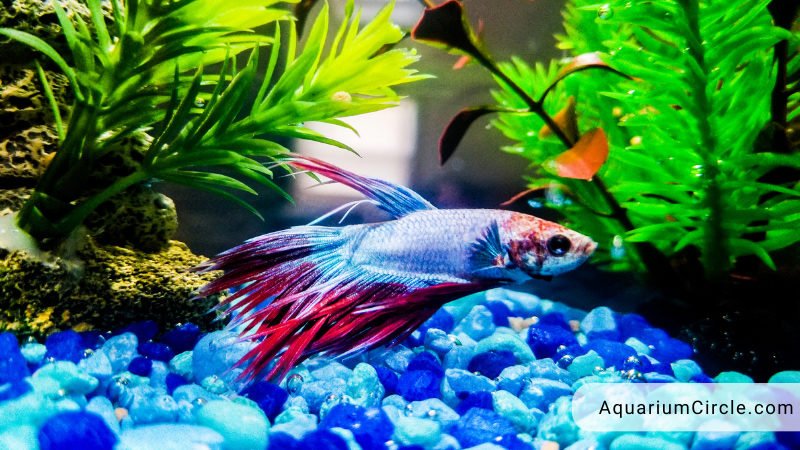
Symptoms of dropsy in betta fish typically include swelling, bloating, and raised scales that give the fish a “pinecone” appearance. The swelling may be visible throughout the fish’s body, including the abdomen, eyes, and fins. Other common signs of dropsy in betta fish include loss of appetite, lethargy, and a general lack of energy.
Betta fish with dropsy may also have difficulty swimming or maintaining their balance, and they may spend more time resting on the bottom of the tank. If left untreated, dropsy can be painful and may eventually lead to organ failure and death. Therefore, it is essential for betta fish owners to monitor their pets closely and seek prompt treatment if they notice any signs of dropsy or other health issues.
How dropsy affects the overall health of betta fish?
Dropsy can have a significant impact on the overall health of betta fish. The condition causes fluid buildup and internal swelling, which can lead to discomfort and pain for the fish. The increased pressure on the fish’s organs can also cause damage and lead to organ failure if left untreated.
Additionally, dropsy can cause a loss of appetite and energy, which can lead to malnutrition and further weakening of the fish’s immune system. This can make the fish more susceptible to other health issues, such as bacterial infections or parasitic infestations.
If dropsy is left untreated, it can ultimately be fatal for betta fish. Therefore, it is crucial for betta fish owners to monitor their pets closely for signs of dropsy and seek prompt veterinary care if they notice any symptoms. By taking proactive steps to prevent dropsy and other health issues, betta fish owners can have a healthy fish for their aquarium.
How To Treat Dropsy In Betta Fish?
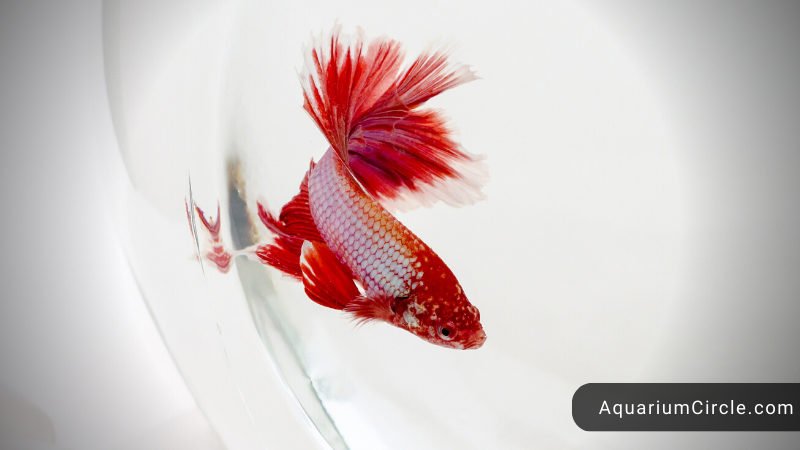
In advanced stages of dropsy, such as extreme bloating, the condition is usually fatal. However, early identification of symptoms can increase the chances of successful treatment. To cure dropsy in your betta, follow the instructions below:
- Perform a 25% water change to ensure clean water for your fish.
- Prepare a separate quarantine or hospital tank for your betta fish.
- Add a heater to the hospital tank with a built-in thermostat and maintain a temperature of around 78 degrees Fahrenheit.
- Keep the water level lower than normal to make it easier for your betta to surface for oxygen.
- Add an air stone with an air pump to oxygenate the water in the tank and promote recovery.
- Add aquarium salt (not table salt!) to the hospital tank at a rate of 0.5 teaspoons per gallon to help reduce swelling and release built-up fluids.
- Always acclimate your betta fish to the hospital tank before transferring it.
- Administer the antibiotic as directed. If your betta fish is still eating, you can soak its food in the antibiotic for faster efficacy. Otherwise, the medicine, such as Kanamycin, can be absorbed by the betta fish through the water.
- Keep in mind that many antibiotics can deplete dissolved oxygen levels and are potent, so daily 25% water changes and an air bubbler are crucial during treatment.
By following these steps and seeking prompt veterinary care, you can help treat dropsy in your betta fish and increase the chances of successful recovery.
See also: Betta Fish Water Temperature: What Is The Ideal Range Of Betta Fish Water Temp?
How To Prevent Dropsy In Bettas?
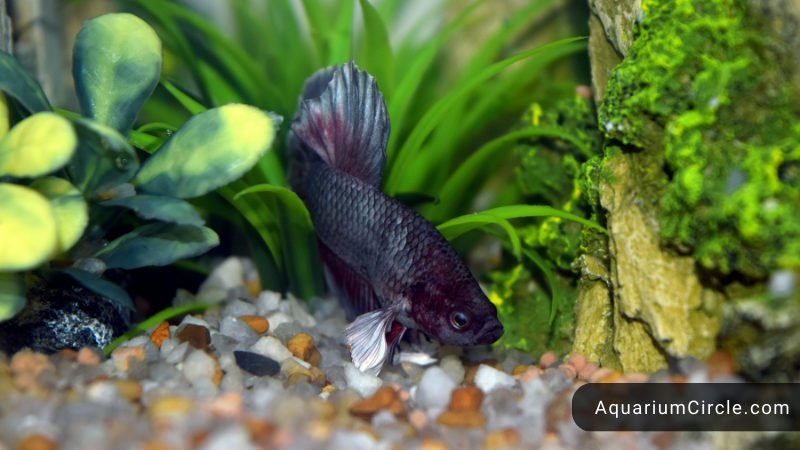
Preventing dropsy in betta fish requires proper care and maintenance to ensure that their environment and diet are healthy and suitable for their needs. Here are some tips for preventing dropsy in betta fish:
- Tank size: The recommended tank size for a single betta fish is at least 5 gallons, although larger tanks are always better. A larger tank will provide more space for your betta fish to swim and explore, which can reduce stress and promote a healthy and active lifestyle.
- Maintain good water quality: Betta fish are sensitive to water quality and require clean water to thrive. Regularly test the water in their tank and perform frequent water changes to ensure that the water quality remains high.
- Provide a healthy diet: Feeding your betta fish a healthy diet that includes high-quality pellets or flakes specifically designed for betta fish can help prevent dropsy and other health issues. Avoid overfeeding your fish and providing live food or proteins not recommended for betta fish consumption.
- Keep the tank clean and well-maintained: Betta fish require a clean and appropriately sized tank with proper filtration and regular maintenance. Clean the tank and filter regularly and provide appropriate lighting and decorations to create a healthy and stimulating environment.
- Avoid overcrowding: Too many tank mates or a too-small ecosystem can create a high bio-load and increase the risk of harmful infections and bacteria that can cause dropsy and other health issues.
- Be observant: Keep an eye on your betta fish for any signs of illness or distress, and seek prompt veterinary care if you notice any symptoms of dropsy or other health problems.
By following these tips, betta fish owners can help prevent dropsy and other health issues in their pets and ensure that they live long, happy lives.
Video About Dropsy Betta
FAQs
What is dropsy in betta fish?
Dropsy in betta fish is a condition that causes the fish to swell up due to fluid accumulation in the abdomen and other body parts.
What causes dropsy in betta fish?
There are several potential causes of dropsy in betta fish, including poor water quality, bacterial infections, and poor diet.
Can dropsy be cured in betta fish?
While there is no guaranteed cure for dropsy in betta fish, prompt treatment and proper care can help to improve the fish’s health and potentially prevent the condition from becoming worse.
How can I prevent dropsy in my betta fish?
To prevent dropsy in betta fish, it’s important to maintain good water quality, provide a healthy diet, and keep your betta tank clean and well-maintained.
Is dropsy contagious to other fish?
Dropsy itself is not contagious to other fish, but the underlying causes of the condition (such as bacterial infections) may be contagious and should be addressed promptly to prevent the spread of disease.
References

Annette M. Chaney is an experienced marine biologist with over 20 years of experience as an aquarist and fishkeeper. She started her first aquarium at a young age, filling it with frogs and goldfish obtained from the ten-cent pet store.
Annette grew up caring for and breeding African Cichlids, which led to a hobby in high school that doubled as a profitable means. Attending Reed College gave her time to solidify herself as an accomplished aquarium caretaker with an eye for sales. After that, from 2009 – 2013, she studied at Roger Williams University – one of the most prestigious universities for Aquaculture and Aquarium in USA. She is the founder of AquariumCircle since 2010.
